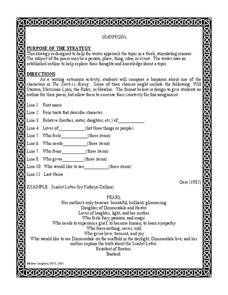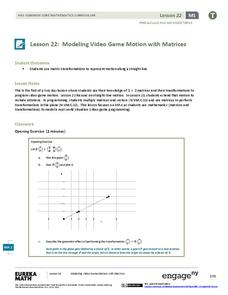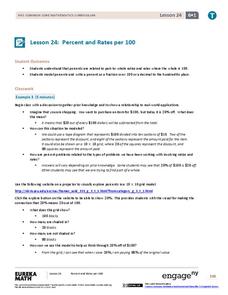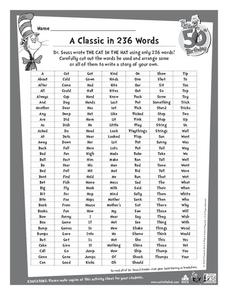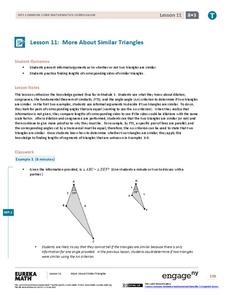Utah Education Network (UEN)
Real World Equations and Inequalities
Use of the resource = Opportunities for increased learning. Learners must use equations and inequalities to solve real-world and geometric problems.
Meadows Center for Preventing Educational Risk, University of Texas at Austin
Sight Word Fluency Lists 61 to 70
Every word matters. Increase reading fluency with word recognition practice. Scholars continue to practice reading words in each list until they demonstrate mastery. Readers practice both new and review word lists.
Lied Center of Kansas
The Ugly Duckling and The Tortoise and the Hare
Both The Ugly Duckling and The Tortoise and the Hare are great additions to an elementary language arts lesson. Young readers focus on the literary elements of each story, including characters and plot development, and apply...
Novelinks
The Dark Is Rising: Biopoem
How well do your learners really know the characters in Susan Cooper's The Dark is Rising? A biopoem activity prompts readers to investigate the characters and their traits. Line by line, writers add the characters'...
EngageNY
Modeling Video Game Motion with Matrices 1
Video game characters move straight with matrices. The first day of a two-day lesson introduces the class to linear transformations that produce straight line motion. The 23rd part in a 32-part series has pupils determine the...
K12 Reader
Nouns as Adjectives
Sometimes nouns can do the work of adjectives! Young language arts pupils analyze ten noun phrases and determine which contain adjectives, and which contain nouns that describe other nouns.
Laboratory for Atmospheric and Space Physics
Space Travel Guide
Looking to take a trip? Why not go to space? Here, scholars take on the role as travel agent to create a guide to their favorite planet including travel tips and sightseeing recommendations.
Curated OER
Understanding Protagonists and Antagonists
How can you tell if a character is a villain? What about a hero? Work on literary analysis with an engaging language arts worksheet. After completing an activity about the four types of conflict, learners fill out a character map about a...
K12 Reader
Abraham Lincoln Bio Poem
Everyone knows about Abraham Lincoln as a historical figure, but what was he like as a person? Young historians complete a biopoem about Lincoln, including his character traits, his relationships, his fears, and his needs.
It's About Time
Chemical Names and Formulas
Abracadabra! Provide your class with the tools to perform a chemical "magic show" as they predict the charges of various ions, determine ionic compound formulas, and make observations to determine when a chemical reaction between...
EngageNY
Solving a Linear Equation
Solving an equation is the art of creating simpler equivalent equations using properties of equality. Here, classes see that solving an equation is not always as easy as guessing. The lesson presents linear equations that scholars must...
EngageNY
Percent
Extend percent understandings to include percents less than one and greater than 100. A great lesson plan has pupils build upon their knowledge of percents from sixth grade. They convert between fractions, decimals, and percents that are...
EngageNY
Solving Area Problems Using Scale Drawings
Calculate the areas of scale drawings until a more efficient method emerges. Pupils find the relationship between the scale factor of a scale drawing and the scale of the areas. They determine the scale of the areas is the square of the...
EngageNY
Percent and Rates per 100
What percentage of your class understands percents? Pupils learn the meaning of percents based upon rates per 100 in the 24th lesson in a series of 29. They represent percents as fractions, decimals, ratios, and models. The scholars...
Illustrative Mathematics
How Many Tenths and Hundredths?
Four hundredths + one tenth = 14 hundredths. Learners complete place order equations in order to make each equation true. Hundredth and tenths are the focus of the worksheet.
K5 Learning
Liza's First Spelling Bee
Learners read about Liza's first spelling bee before answering six reading comprehension questions. Skills include identifying similarities, making inferences, drawing conclusions, and answer questions based on explicit information in...
National Security Agency
Place Value - Butterflies Floating Place to Place
Learn about butterflies and place value in a series of interdisciplinary lessons! With several worksheets that reference butterfly facts in word problems, kids can practice science and math in one activity. Additional worksheets are...
Sundance
Teaching Strategies: The Giver
Can utopia be achieved? Included here are three literature worksheets to pair with Lois Lowry's The Giver. Pupils work in groups to come up with solutions to society's issues, individuals back up a statement related to a topic in the...
Seussville
A Classic in 236 Words
Get in the reading spirit on Read Across America Day while celebrating Dr. Seuss' birthday with four printable worksheet activities. Included is a word search using story character's names, a quiz to test how many Dr. Seuss titles you've...
EngageNY
An Appearance of Complex Numbers 1
Complex solutions are not always simple to find. In the fourth instructional activity of the unit, the class extends their understanding of complex numbers in order to solve and check the solutions to a rational equation presented in the...
EngageNY
Complex Numbers as Vectors
Show your math class how to use vectors in adding complex numbers. Vectors represent complex numbers as opposed to points in the coordinate plane. The class uses the geometric representation to add and subtract complex numbers and...
Balanced Assessment
Time Line
Use a graph to tell a story! Given a graph, young scientists create a story to match. They must provide their own axes labels and description of the scenario. The graph has increasing, decreasing, and constant sections.
Balanced Assessment
Star from Square
Quilting is not only beautiful and unique—it is a mathematical art. Show your classes how to design a quilting block while practicing area and circumference of circles. Scholars create a star from a square and then find the circumference...
EngageNY
More About Similar Triangles
Determine whether two triangles are similar. The instructional activity presents opportunities for pupils to find the criterion needed to show that two triangles are similar. Scholars use the definition of similarity to find any missing...
Other popular searches
- Creative Writing Short Story
- Creative Writing Assignments
- Esl Creative Writing
- Creative Writing Activities
- Creative Writing Ideas
- Creative Writing Poetry
- Creative Writing Units
- Creative Writing Homework
- Creative Writing Lessons
- Character Creative Writing
- Creative Writing Prompt
- Imaginative Writing Prompts





